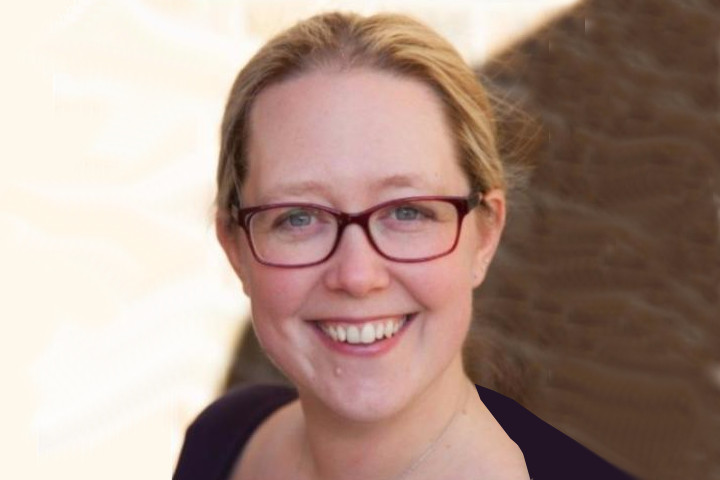Real Model Interview featuring Rachel Grace, People Business Partner at Toyota (GB) Plc

We recently had the pleasure of speaking with Rachel Grace, People Business Partner at Toyota GB, in our latest Real Model interview.
In this interview, Rachel explains what encouraged her to join Toyota GB Plc and what she enjoys most about her role. She tells us what makes her happy, and details just some of the interesting places she has performed with her singing hobby. Rachel also speaks about her recent diagnosis of autism, and how her diagnosis has helped her.
What is your job and what does it involve?
I’m a People Business Partner for Toyota (GB) PLC. It’s a great role that combines day-to-day HR support for several business areas alongside project work. My role tends to focus on data, insight, technology, and engagement. You can often find me playing with numbers!
How long have you worked in the sector?
Since I’ve been at TGB – about 8.5 years now.
What inspired you to join the motor trade?
I didn’t really aim to join the motor trade! My role tends to exist in most industries; what attracted me to TGB was the role and the team that I was going to work with.
What do you like best about your job?
I love the variety and the range of things I can get involved in. I love the mix of people and data and the opportunity to really make a difference in employees’ lives day to day and long term. I also love the changes that we can make for our people, including our current opportunities in DE&I
We know you were recently diagnosed as neurodiverse, can you tell us a little bit more about your neurodiversity?
In 2020, at the age of 42, I was formally diagnosed with Autism Spectrum Disorder (ASD). You might also know it just as autism or a previous version of autism called Aspergers. My diagnosis helped me make sense of things that I have found really hard throughout the years, such as my extreme discomfort in social settings, getting stuck on seemingly simple tasks, an almost obsessive fascination with particular interests, and my tendency to forget basic self-care such as remembering to eat, drink or sleep! Some people find their autism to be disabling, as the barriers to interact with others in society are too high. That’s not my experience – I like the differences it gives me.
I was diagnosed after my son went through the diagnostic process, and I thought “hmmm, this is all sounding very familiar…” and subsequently my daughter has also been diagnosed. Autism was thought to be much more common in boys and men, but this is changing. The original research was done on boys with learning difficulties in the 1950s and therefore there was no definition of what autism looked like for women and girls. It can be very different – as, with many other conditions, it’s very individual, and is truly on a spectrum.
It’s really common for people with autism to feel that everyone else has been given an instruction book that we’ve not received – sometimes it feels like everyone else knows something we don’t. I really like the metaphor that I’ve seen from one autism group that likens an autistic brain trying to operate in an allistic (non-autistic) society to an Android phone trying to connect to the Apple app store. It can’t do it, not because the phone is broken, but because it’s not designed/wired that way.
What are your future aspirations?
Career-wise, I would love to progress in HR, but I’m also interested in business analysis and data so would be open to working in another part of the business that uses these skills. On a personal level, I’m excited to see my children develop into their future education and on into adulthood.
Can you name a woman in automotive that inspires you and why?
I don’t think I can pick one, but I am inspired daily by my colleagues (male and female) in the TGB People Team. We’re very different as people but share common values of fairness, kindness, and honesty – and a great love of eating!
What makes you happy?
Lots of things really – I find myself horribly optimistic! I really enjoy spending time with my family, playing video games and singing. I’ve been fortunate enough as an amateur to sing in some amazing places (with permission, I don’t just turn up!), including Westminster Abbey, and the First and Last Night of the Proms.
What did you want to be growing up?
I wanted to be an astrophysicist or astronomer, but I couldn’t get my head around the applied maths needed to do the physics calculations. I did a Maths degree but much preferred the pure maths which is all about abstract thinking and playing with numbers
What is your best trait?
My resilience and perseverance. When I was younger, like many young women I was often labelled as stubborn, but without this ability to stop, reflect, and be focused on what I want to achieve, I wouldn’t have managed to achieve as much as I have.
Who in your life has been a positive role model for you?
My mum. She’s been through some incredibly tough things including managing as a single parent whilst holding down a senior management role – not common in the 80s. I’ve learned a huge amount from her and continue to do so – she’s very funny and incredibly kind.
What advice would you give to women who are wanting to progress in the sector?
Be yourself. Don’t try and make yourself fit what others want you to be – your point of view and insight are just as valuable as anyone else’s.
